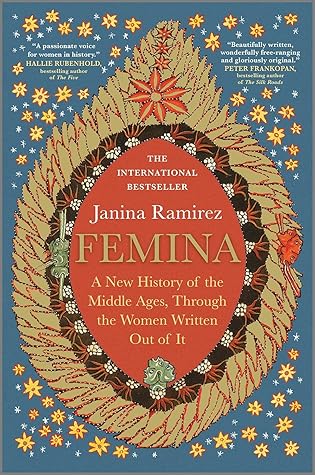More on this book
Community
Kindle Notes & Highlights
Read between
March 18 - June 4, 2024
‘I am the fiery life of divine substance, I blaze above the beauty of the fields, I shine in the waters, I burn in sun, moon and stars.’ Hildegard of Bingen
Repackaging the past can influence the present.
many of the modes of discrimination we vigorously challenge today are not always products of the medieval or pre-medieval periods, but of the last few centuries.
For the suffragettes, however, the women they foregrounded displayed two essential medieval attributes: they were challenging societal norms by achieving power and influence despite their sex, and they were deeply religious. The modern leaning towards science and reason over religion and spirituality has meant the deeply devout nature of the suffragette movement is often overlooked. For many today they are seen as political rather than pious. But the majority of women who took part in militant activity saw themselves as soldiers of Christ, promoting social change framed within religious terms.
Very few scholars have discussed these suffragettes who were fascinated by the medieval period. But understanding their medievalism subverts the general consensus that these twentieth-century women were fighting for agency in a vacuum, blazing a trail like never before. Rather than accept the misconstructions of the medieval period that had accrued over the intervening centuries, these suffragettes recognised a time when women had agency – and they wanted to return to it.
The title of this book – Femina – was the label scribbled alongside texts known to be written by a woman, so less worthy of preservation.
The burning, destruction or removal of books carries with it two purposes: to destroy the physical objects, and to remove their contents from people’s memories.
The Reformation impacted women significantly. As convents were closed, opportunities available to women narrowed to being a wife and being a mother.
Over-writing – the practice whereby male writers would take the visions, words and ideas of female intellectuals and rewrite them for a largely male audience – was also common throughout the period.
Controlling access to the past controls populations in the present, and determining who writes history can affect thought and behaviour.
We have little choice but to acknowledge our modernity, admit that our interest in the past is always (and by no means illegitimately) born of present concerns.
Religion has long been used as the tool of the powerful through periods of change.
To be illiterate was not to be ignorant, but rather to utilise more of the memory actively. It was Christianity that brought literacy and Latin to a people who had depended for three centuries on oral tradition and memory. It could be argued that with writing came complacency, bureaucracy and rigidity.
Just as the religion travelled to England with a woman, it was women who aided the quick and effective spread of Christianity across the country. The role of women in the early church is consistently underplayed, but when it came to the conversion of the English, wives and mothers were the ultimate tools of influence.


